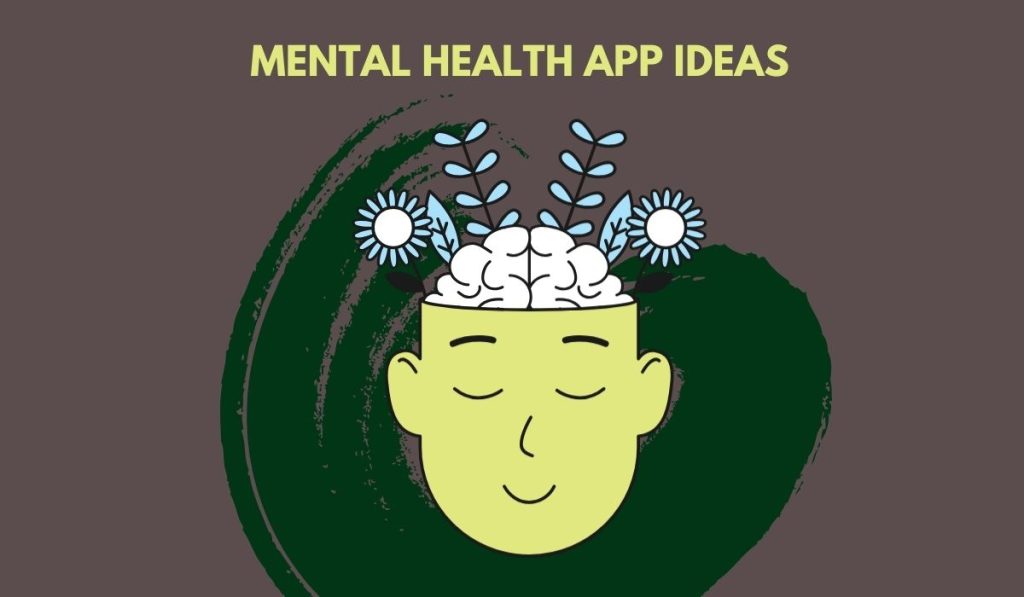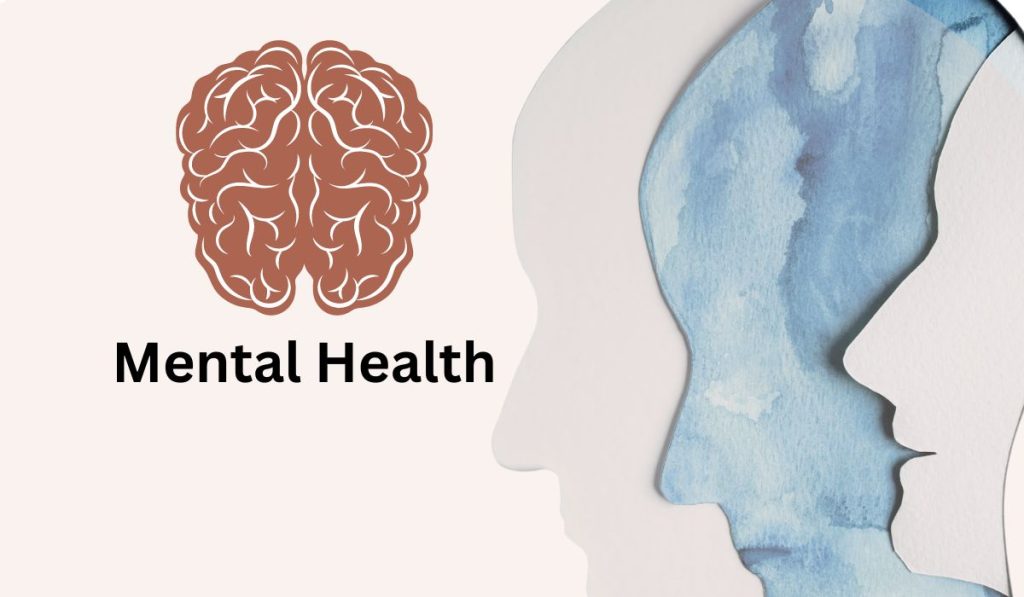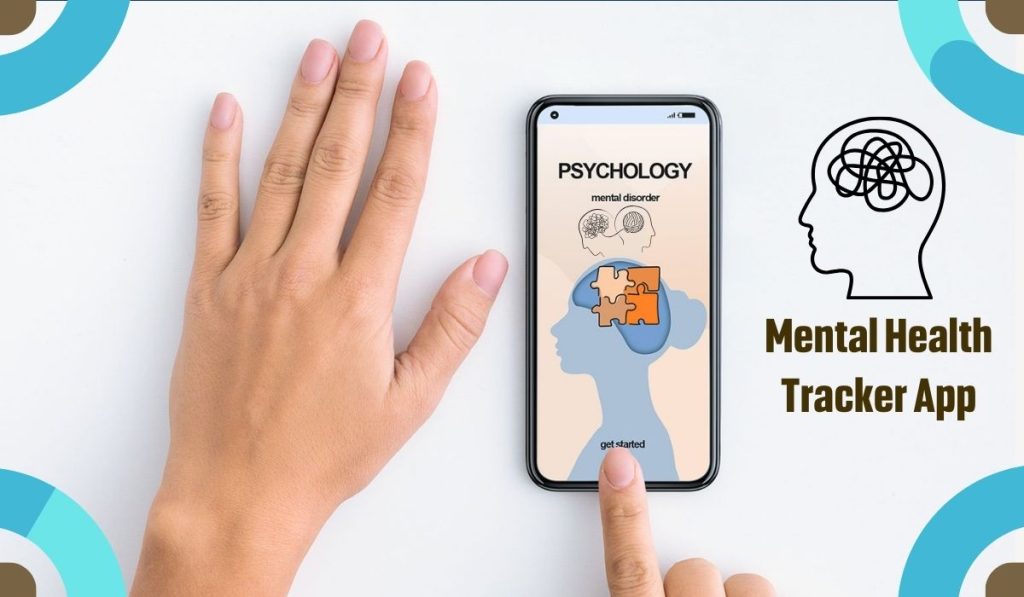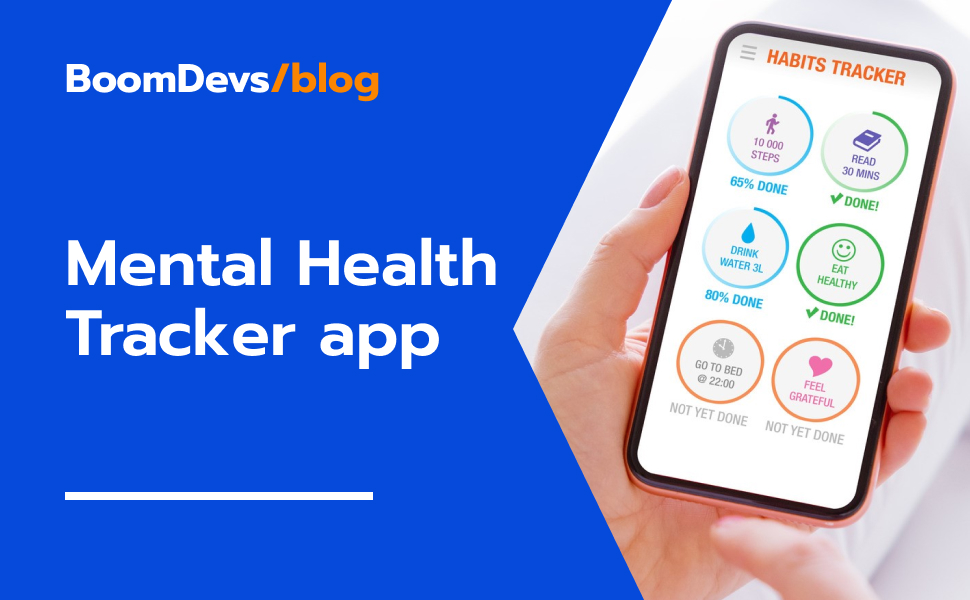How To Build A Good Mental Health Tracker App?
In today’s fast-paced world, it’s becoming increasingly important to pay attention to our mental health. With all the stress and challenges we face, it’s crucial to find ways to take care of our minds. Luckily, technology is here to help! We now have access to apps that can help us keep track of our mental well-being. These apps are like little helpers on our phones, giving us tools to understand and improve our mood, set goals, and even connect with others for support. In this article, we’ll explore how these mental health tracker apps are built and why they’re so important for our mental wellness in today’s digital world.
Understanding User Needs and Requirements:
Understanding the user’s needs and requirements is crucial when building a top-notch mental health tracker app. Firstly, it’s essential to define the target audience for the app, which may include individuals managing anxiety, depression, stress, and other mental health concerns. Conducting thorough market research is the next step, allowing developers to identify existing gaps in the market and understand user preferences. This research helps ensure that the app’s features and functionality align with what users are looking for. Additionally, gathering feedback through surveys or focus groups provides valuable insights into user needs, allowing developers to tailor the app to meet those needs effectively. By understanding the target audience and gathering user feedback, developers can create a mental health tracker app that truly addresses the needs of its users.
Mental Health App Ideas:
In today’s busy world, more and more people are looking for ways to take care of their mental health. Luckily, there are some cool ideas for mental health apps that can help. Let’s take a look at a few:

Games to Make You Feel Better: Imagine playing games that help improve your mood and teach you how to handle stress better. These games can make therapy fun and interesting.
Relaxing Nature Sounds: Sometimes, just listening to the sounds of nature can help calm your mind. An app that lets you listen to things like waves crashing or birds chirping could be soothing.
Virtual Reality Therapy: Have you ever tried virtual reality? It’s like being in another world! A mental health app using virtual reality could help you face your fears or just relax in a peaceful setting.
Get Creative: Drawing, writing, and other creative activities can be a great way to express yourself and feel better. An app that lets you do these things digitally could be a lot of fun!
Personalized Plans for Feeling Good: Everyone’s different, so why should mental health plans be the same for everyone? An app that creates a plan just for you, based on what you like and what works for you, could be really helpful.
With these ideas, mental health apps can become even more helpful and fun to use. They’re a great way to take care of your mental health wherever you are!
Design and Features
When it comes to building a good mental health tracker app, the design and features play a pivotal role in enhancing user experience and effectiveness.

A user-friendly interface is paramount, emphasizing the importance of a clean and intuitive design for seamless navigation. Essential features that contribute to the app’s functionality and user engagement include:
- Mood Tracking: Implementing a feature that allows users to log their daily moods and emotions, providing valuable insights into their mental well-being over time.
- Journaling: Allowing users to record their thoughts, feelings, and experiences through journaling, facilitating self-reflection and emotional expression.
- Goal Setting: Including functionality for users to set and track achievable goals related to their mental health, empowering them to take proactive steps towards improvement.
- Reminders and Notifications: Incorporating reminders for medication, self-care activities, or appointments, helping users stay on track with their mental health management routine.
- Insights and Analytics: Providing users with personalized insights and analytics based on their data input, offering valuable feedback and motivation for progress.
- Community Support: Integrating social features like forums or support groups, enabling users to connect with others facing similar challenges and receive peer support and encouragement.
By incorporating these design elements and features into the mental health tracker app, developers can create a comprehensive and user-centric solution that effectively supports individuals in their mental well-being journey.
Data Privacy and Security
Protecting your personal information is super important, especially when it comes to sensitive topics like mental health. That’s why it’s crucial to make sure that your data stays safe and private. Laws like GDPR or HIPAA set strict rules to help keep your info secure. One way to do this is by using strong encryption and authentication measures, kind of like locking your data away with a super strong password. By making sure your data is safe, you can feel more confident and secure when using apps or websites related to mental health.
Development Process:
Developing a mental health tracker app involves a comprehensive process aimed at creating a reliable and user-friendly platform to support mental well-being. Key steps in this development process include:
Choosing the Right Technology Stack:
We are selecting appropriate programming languages, frameworks, and tools based on project requirements.
Adopting Agile Methodology:
Embracing an iterative development approach to allow for flexibility and continuous improvement throughout the project lifecycle.
Implementing Testing and Quality Assurance:
Conducting rigorous testing procedures to identify and resolve bugs or issues, ensuring the app’s reliability and performance.
Incorporating Beta Testing:
Involving real users in beta testing to gather feedback and make necessary adjustments before the app’s official launch.
By following these steps diligently, developers can create a mental health tracker app that meets user needs effectively while adhering to high standards of quality and reliability.
Launch and Marketing:
Launching and promoting a great mental health tracking app involves reaching out to the right people and tapping into the growing market for mental health apps worldwide. These apps are designed for anyone who wants to manage feelings like stress, anxiety, or depression.

As more people look for ways to improve their mental well-being, the market for these apps keeps growing. The future looks bright for mental health apps, with technology advancing to offer even better ways to support mental health. By using smart marketing strategies and keeping an eye on what users need, these apps can make a real difference in helping people feel better mentally. We should follow a few steps for launch and marketing
- To make sure lots of people notice and want to download your app, you need to make it look awesome in the app store! That means using eye-catching pictures and videos that show off what your app can do. You also need to write a description that tells people why they should get your app and what makes it special. By doing this, you can make sure that people understand how great your app is and want to give it a try!
- Develop a marketing strategy to reach the target audience through social media, influencer partnerships, and targeted advertising.
- Encourage users to leave reviews and ratings to boost your app’s visibility and credibility in the app store. Positive feedback helps attract more users and builds trust in your app.
Continuous Improvement
Continuous improvement is key to ensuring that a mental health tracker app remains effective and relevant in meeting users’ evolving needs. By regularly updating the app with new features, bug fixes, and performance enhancements, developers can enhance the user experience and stay ahead in the competitive digital landscape. Additionally, gathering and analyzing user feedback allows for insights into areas for improvement, ensuring that the app continues to provide valuable support for mental well-being. Through continuous iteration and refinement, a mental health tracker app can maintain its position as a trusted companion in promoting and enhancing mental health. We should follow a few steps.
- Monitor User Feedback: Regularly collect and analyze user feedback to identify areas for improvement.
- Update and Iterate: Release regular updates with new features, bug fixes, and performance improvements based on user feedback and emerging trends in mental health technology.
Build a Good Mental Health Tracker App with BoomDevs
Team up with BoomDevs to build an amazing Mental Health Tracker App. In today’s digital world, where smartphones are a big part of our lives, mental health apps are like your own personal support system, ready whenever you need a hand. These apps are super important because they’re there to help you through tough times, and they’re made to be friendly and welcoming to everyone.
If you’re thinking of creating your mental health app to reach even more people, BoomDevs is here to make it happen easily. We’ll take your idea and turn it into a fantastic app, and we’ll be there to help you every step of the way. With our experience in making awesome digital projects, you can count on us to bring your vision to life. Let’s chat today.
Conclusion:
To sum it up, building a good mental health tracker app means focusing on what users need, keeping their information safe, and always making the app better. By putting users first, protecting their privacy, and making improvements over time, these apps can help people feel better. So, developers, remember to listen to users, keep their data safe, and keep making your app even better!






